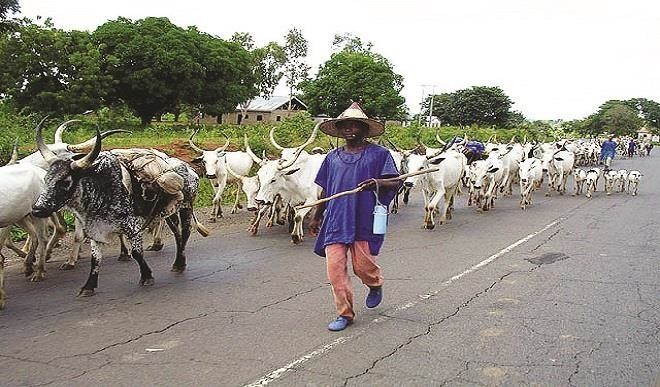Nigeria, death and herdsmen
The statement that “the so-called nomads are merely individuals in the employ of big cattle owners” is patently absurd and merits no place in an editorial on such weighty issue. It echoes the ridiculous claim by Otunba Tola Adeniyi, in a piece that was published by the Guardian few weeks ago, that the country’s cattle […]


The statement that “the so-called nomads are merely individuals in the employ of big cattle owners” is patently absurd and merits no place in an editorial on such weighty issue. It echoes the ridiculous claim by Otunba Tola Adeniyi, in a piece that was published by the Guardian few weeks ago, that the country’s cattle – all estimated 19.6 million of them – are owned by the trio of Atiku Abubakar, Olusegun Obasanjo the Abdulsalami Abubakar! Claims and conclusions to the contrary, the Fulani pastoralists are the owners of the innumerable herds of cattle they rear around the country, North to South and back, following the seasons, seeking suitable pasture. Cattle are integral to the life and culture of the Fulani, their measure of value and store of wealth, ownership of which is a measure of one’s social standing.
The Fulani, who would defend their cattle with their lives, do not regard them as commercial goods to be traded for profit. Cattle herding is indeed “private enterprise” as postulated, and like other enterprises need physical space, whether ranches or the open range. The pattern among (native) herdsmen across Africa is the latter, in West Africa as with the Fulani and East Africa with the Maasai. Where ranches developed on the continent they were the product of colonial rule where white settlers seized vast tracts of land in countries like Kenya, South Africa and Zimbabwe. The ranching practice, so approvingly cited, on the pampas of Argentina and other Latin American countries – indeed on the North American plains too – did not develop from the onset. First, the sparse native populations in these countries were driven off the lands or killed and cattle rearing were introduced; the animals allowed to roam the lands under the care of the iconic cowboys. Then the changing economy made ranching more attractive, even as the ranches were large tracts of land, most covering tens of square miles. Cattle rearing has been an integral part of the economy of societies across history. Today, countries from Latin America to Europe and Asia benefit from foreign earnings by the export of beef, milk and other products. Colonial rulers in Nigeria recognised the importance of cattle rearing in the country and took steps to encourage it. Veterinary services were established to assist the Fulani pastoralists keep their animals healthy. The Fulani paid taxes on their cattle (jangali), an important source of revenue for the defunct Native Authorities (N.A.s) in the Northern Region. And yes, there were established grazing routes and reserves for the use of the herdsmen. Conflicts, even violent ones, are a feature of the relationship between farmers and herdsmen. These are not the result of ethnic or religious differences but competing economic interests. Deliberately or otherwise, cattle enter into farms and eat up crops, resulting into clashes between farmers and herdsmen. The severity of the conflicts today owes as much to the ineffectiveness of governments at all levels as to the pressure on land arising from population explosion. They are unable to enforce their will and the law.
Sophisticated weapons, hitherto the preserve of law enforcement personnel are now in the hands of armed robbers, militants, kidnappers, terrorists as well as the herdsmen who have their wealth to protect from cattle rustlers. Given the changed circumstances, ranching can indeed replace the current practice. The regrettable events in Benue and Enugu should not be used to whip up mass hysteria and ethnic profiling. It is certainly unalloyed exaggeration to discern in these clashes elements of “territorial conquest and faith imposition.” Such fanciful interpretation amounts to incitement; the present situation deserves calmer approach than has been its lot so far.
M T Usman, [email protected]
